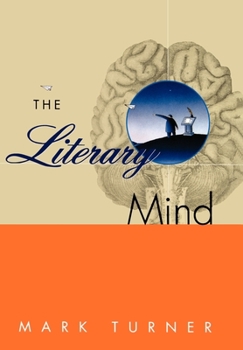The Literary Mind: The Origins of Thought and Language
Select Format
Select Condition 
Book Overview
We usually consider literary thinking to be peripheral and dispensable, an activity for specialists: poets, prophets, lunatics, and babysitters. Certainly we do not think it is the basis of the mind. We think of stories and parables from Aesop's Fables or The Thousand and One Nights, for example, as exotic tales set in strange lands, with spectacular images, talking animals, and fantastic plots--wonderful entertainments, often insightful, but well...
Format:Hardcover
Language:English
ISBN:0195104110
ISBN13:9780195104110
Release Date:September 1996
Publisher:Oxford University Press, USA
Length:208 Pages
Weight:1.05 lbs.
Dimensions:0.7" x 6.3" x 9.4"
Customer Reviews
2 ratings
A startling and fresh view of cogntion
Published by Thriftbooks.com User , 22 years ago
I'm giving this book a 5 star rating because of the first 3 chapters. You really don't have to read any more. After that, the author gradually seems to lose his direction and punch, but it really doesn't matter.The book attempts a very difficult project, investigating the cognitive aspects of story telling. It seems simple enough on the surface, but quickly gets enmeshed in stories about stories. It gets very confusing.Turner holds that stories are based on the combination of cognitive elements called 'schemas' and a cognitive process called 'projection'. An image schema might be a 'ball flying through the air' or 'a boy talking to his mother.' Schemas have their own intrisic value and emotional content. Via 'projection', schemas transfer their 'content' and 'emotion' onto entirely different schemas such as 'a baby horse talking to its mother.' Turner's examples are excellent, particularly his parables. For a somewhat more complete study of cognitive aspects, look at Lakoff and Johnson's 'Philosophy in the Flesh'. Lakoff and Johnson avoid the technical term 'image schema' and use the more familiar term 'metaphor.' Here is a quote from the introduction that gives a good outline of the book's project: "Story is a basic principle of mind. Most of our experience, our knowledge, and our thinking is organized as stories. The mental scope of story is magnified by projection - one story helps us make sense of another. The projection of one story onto another is parable, a basic cognitive principle that shows up everywhere, from simple actions like telling time to complex literaray creations like Proust's 'A la recherche du temps perdu.'...
Highly original and important
Published by Thriftbooks.com User , 22 years ago
Turner's contribution may turn out to be the most important among recent insights into the nature of consciousness. Also, less pretense, more content, and a wonderful writing style mark this work.




